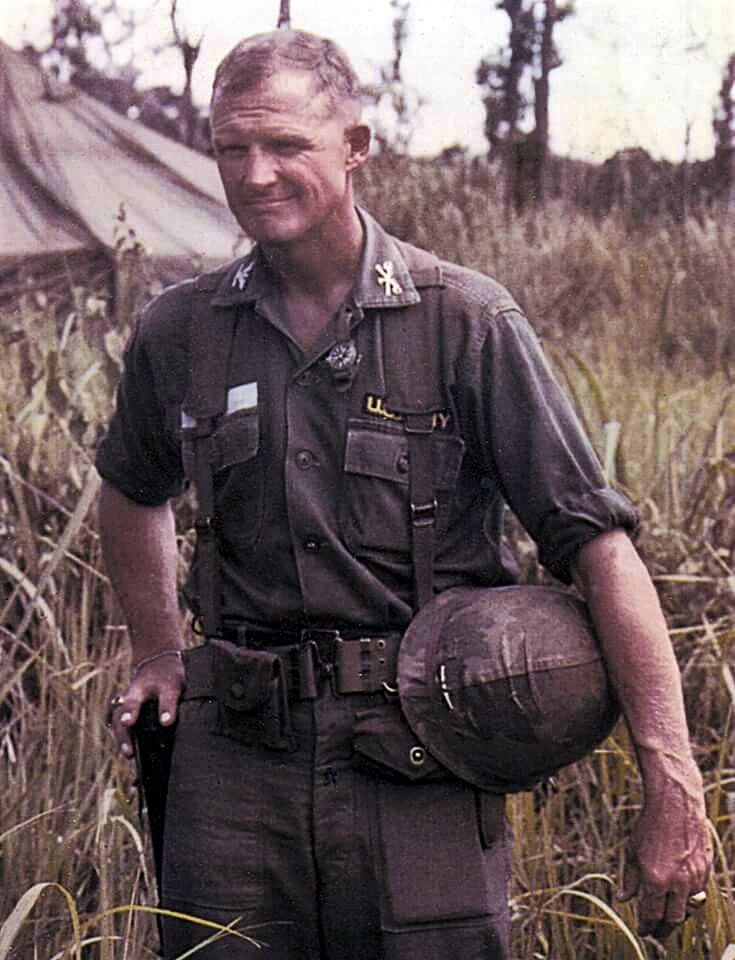
Two points about leadership.
Leadership is not a CEO, Admiral, Manager, Pope or President. Those are titles, not leadership.
The second point, rather points, come from General Hal Moore:
“We need leaders of principle, courage, character, wisdom, and discipline; and yet we seem trapped by a system of choosing our presidents that pushes those who possess those traits aside in favor of others who look good on television, are skilled at slandering and demonizing their opponents in a campaign, and are able to raise the hundreds of millions of dollars required to ensure election at any cost.”
That blunt yet accurate assessment comes from General Hal Moore (Ret.), the man who led 450 troops against overwhelming odds in the harshest battle in Vietnam; a battle he detailed in his best selling book, We Were Soldiers Once… and Young.
I had the privilege of exchanging letters with General Moore several years ago. His words were short, strong and sincere; words that came from years of living out the principles he believed in. Moore passed down those qualities in Leadership: Winning when Outgunned and Outmanned.
“To be a leader, you must be willing to be a lifelong learner. …and a good listener. …(1) He must be competent, (2) he must exercise good judgment, and (3) he must have character. By itself, competence is meaningless without character and good judgment.”
“Leadership is a highly personal, individual matter. Each leader must establish his own approach based on an internal compass using a method geared to his personality, his capabilities, but always oriented towards accomplishing the mission while knowing and taking care of his men.”
“When in charge, take charge, but treat your subordinates with respect, dignity, and common courtesy. …Fewer things will impact a team’s morale than a leader who does not recognize their accomplishments and hard work.”
“If you seek to correct a subordinate’s overall behavior or performance, start by telling them what they do well, then tell them where they need to improve.”
“A leader must be visible to the people he leads. He must be self-confident and always maintain a positive attitude. If a leader thinks he might lose in whatever crisis or situation; then he has already lost.
“He must exhibit a determination to prevail no matter what the odds or how difficult the situation. He must have and display the will to prevail by his actions, his words, his tone of voice, his appearance, his demeanor, his countenance, and the look in his eyes. He must never give off any hint or evidence that he is uncertain about a positive outcome.”
“Even in the midst of defeat, carry yourself professionally and maintain your discipline. That is the quickest way towards recovery.”
“Don’t automatically assume that someone is stupid or indifferent because they haven’t mastered a particular task yet. …a leader’s task is to develop their subordinates’ will along with their skill. This begins with realistic training with consistent standards.”
“On those occasions when one of my people did not perform as expected, I found that in many cases at least half the fault was my own. I had either not put out clear, clean instructions or I had not trained that person sufficiently, or I had given him a task with little or no possibility of accomplishment.”
“The best leaders strive to create a ‘family environment’ within their organization.”
“No job is ever ‘beneath’ you. In whatever you do, do it to the best of your abilities.”
“A leader should surround himself with persons who fit his requirements and standards — and then turn them loose to do their jobs.
“A leader is paid to do three things: Get the job done and get it done well. Plan ahead — be proactive, not reactive. Exercise good, sound judgment in doing all of the above.”
“If you want something done, ask nicely. If a subordinate performs a task and the outcome is not what you expected, don’t attack their intelligence or their character. Politely explain the deficiencies and offer an idea for a solution. Subordinates quickly lose respect for any leader who is ‘all problem and no solution.’ ”
“There are at least five activities that must be kept in balance through proper time management. This is not easy for a busy executive with significant responsibilities, especially in this world of ‘information overload.’ These five activities are: the job, physical fitness, personal time alone, recreation, and social relationships. Also, if they apply, two others—religion and family. If any of these get out of balance, then life gets out of balance. From my personal experience and observation of others, being a workaholic is the most common area of imbalance.”
While Gen. Moore passed in 2017, his lessons are more important than ever.
Comments
Leave a Comment











I must fill in the “comment” portion for my now departed friend General Hal Moore.
I did not serve under him until 1969 when he commanded US Army 7th Division at Ft. Ord, California, but even on my Nam tour in 1958-1959 his earlier legend as a warrior, leader and patriot was becoming known.
As a fighting Lt. Colonel troop leader in 1965, standing before his 7th Cavalry Regiment before going to the Ia Drang Valley, he told them: “We are moving into the Valley of the Shadow of Death where you will watch the back of the man next to you and he will watch yours, and you won’t care what color he is or by what name he calls God. We are going into a battle against a tough and determined enemy. I can’t promise you that I will bring you home alive. But this I Swear…when we go into battle I will be the first to step onto the field and I will be the last to step off. And I will leave no one behind, dead or alive. We will all come home together.”
America has lost a magnificent person.